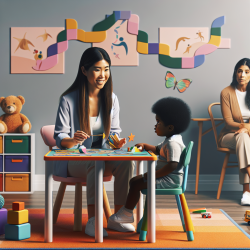Here are some key takeaways from the study and how they can be applied to improve therapy outcomes:
Understanding Biographical Disruption
The concept of biographical disruption, as detailed in the study, is vital. This refers to the profound life changes that occur when a child is diagnosed with congenital Zika syndrome (CZS). For practitioners, recognizing this disruption helps in:
- Providing empathetic and holistic support to the family.
- Designing therapy plans that consider the emotional and psychological well-being of both the child and the caregiver.
Importance of Communication
The study highlights the significant impact of how the diagnosis is communicated to families. As practitioners, improving our communication strategies can involve:
- Using clear, compassionate language to explain the diagnosis and therapy process.
- Providing continuous updates and involving families in decision-making.
Building Support Networks
The research emphasizes the role of social support networks in alleviating the burdens on female carers. Practitioners can facilitate the development of these networks by:
- Connecting families with local support groups and resources.
- Encouraging peer support among families dealing with similar challenges.
Incorporating Cultural Sensitivity
Given the cultural context of the study, it is crucial for practitioners to be culturally sensitive. This can be achieved by:
- Understanding the specific cultural and socio-economic backgrounds of the families.
- Tailoring therapy and support plans to align with the family's cultural values and practices.
Encouraging Further Research
The study opens up numerous avenues for further research. Practitioners should be encouraged to engage in or support research initiatives that aim to explore:
- Long-term outcomes of children with CZS.
- The effectiveness of various therapy approaches in different cultural settings.
By implementing these insights, practitioners can make data-driven decisions that lead to better outcomes for children with CZS and their families. For a deeper understanding and to read the original research paper, please follow this link: “Life Is Taking Me Where I Need to Go”: Biographical Disruption and New Arrangements in the Lives of Female Family Carers of Children with Congenital Zika Syndrome in Pernambuco, Brazil.










